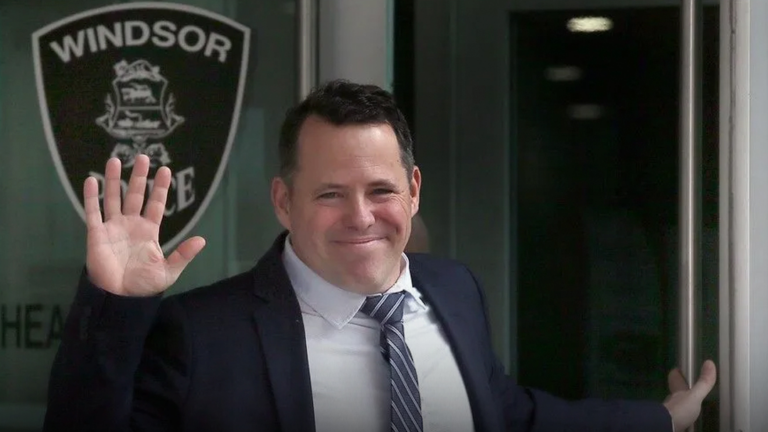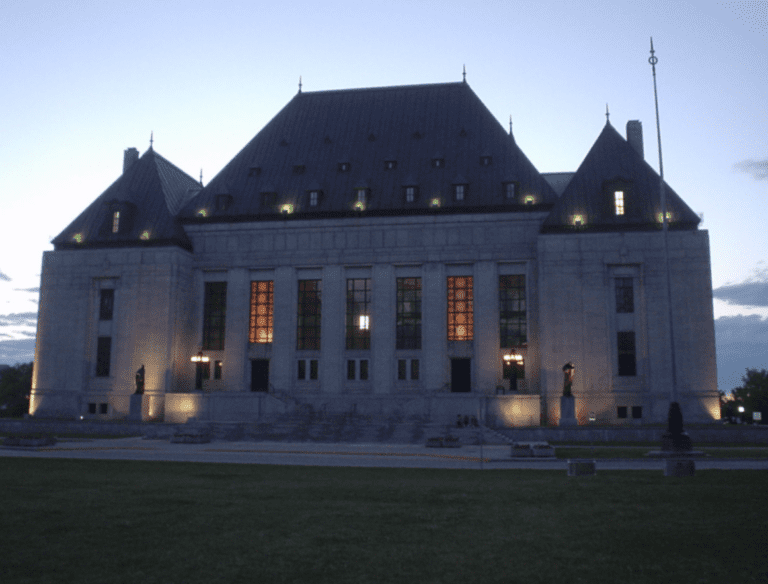JOHN CARPAY
From Austria to Australia, Grabhers around the world have heard about how their last name has been censored by the Nova Scotia Registrar of Motor Vehicles, which took away Lorne Grabher’s personalized licence plate. Lorne’s father joined the army at age 17 during the Second World War. His family purchased the plate as a retirement present. The plate has since been used by Lorne, by Lorne’s father, and by Lorne’s son, for 27 consecutive years.
Suddenly, in late 2016, the Registrar revoked the plate without clear reasons, after a single anonymous complaint against this German- Austrian last name. Lorne Grabher has filed a lawsuit against the Nova Scotia government for refusing to reissue his plate. He also challenges the wishy-washy regulation that empowers the Registrar to decide whether a plate “is or may be offensive.” Nova Scotia faces an uphill battle to prove that it has not violated the Canadian Charter of Rights and Freedoms. To assist with its case, the government has recruited, not a lawyer or an expert in statutory interpretation, but Professor Carrie Rentschler from the Art History and Communication Studies Department at McGill University. This expert in sexuality and feminism spent the fall of 2017 at the Centre for Transdisciplinary Gender Studies in Berlin.
Lorne Grabher and others have questioned whether the government’s revocation of the plate was related to words spoken in 2005 and widely publicized in 2016, by a certain Government Sides With Social Justice Warriors to Trample Constitutional Freedoms American presidential candidate. Nova Scotia has publicly denied that US politics had anything to do with its decision to revoke the GRABHER plate. In spite of this denial, Professor Rentschler claims in her report, filed with the court, that Donald Trump is somehow related to the legality of the plate, and that the Grabher name infers the words “by the pussy.” Other Rentschler opinions, many of which quote herself as an authority, include claims that the GRABHER plate would be understood to condone “rape culture” and sexual violence; and that the plate is connected to “aggrieved white masculinity.”
Professor Rentschler’s opinions are unsupported by facts or evidence. For example, she asserts that the GRABHER plate endangers women, without providing any evidence that anyone was endangered by the plate during the 27 years that it was publicly displayed. Nor does this Professor explain whether the Grabher Consulting businesses in Nova Scotia and other jurisdictions and Austrian tennis player Julia Grabher, also endanger women. According to several polls, the vast majority of Nova Scotians support Lorne Grabher’s right to have his last name on his license plate. Without performing any surveys or studies, Professor Rentschler has taken it upon herself to speak for the people of Nova Scotia, as though her own bald opinion is sufficient to deem the plate offensive. Regarding these wild and unscientific claims (e.g. the Grabher name somehow infers the words “by the pussy”), Canadians should be concerned that the government is unashamedly willing to rely on such assertions to justify its decision to trample on Lorne Grabher’s freedom of expression.
The Grabher case is about far more than the reinstatement of a licence plate, though. At the heart of this litigation is the growing problem in Canada of arbitrary state action, and governments violating basic freedoms, like freedom of expression and freedom of religion. If Mr. Grabher’s plate was lawful for 27 years, why did one anonymous complaint suddenly make it unlawful? Should the state be permitted to whimsically and arbitrarily change its mind? Should one person, who claims that her feelings were hurt, be empowered to violate the freedom of expression of her fellow citizens? These questions, and others, will be addressed by the court after the final hearing of the Grabher case this September. In the interim, Lorne Grabher has brought an application to strike Professor Rentchler’s “expert” report, for failing to meet the legal standards for expert evidence that have been set out by the Supreme Court of Canada.
Calgary lawyer John Carpay is president of the Justice Centre for Constitutional Freedoms (JCCF.ca), which represents Lorne Grabher in his court application.
JAN. 24, 2018









